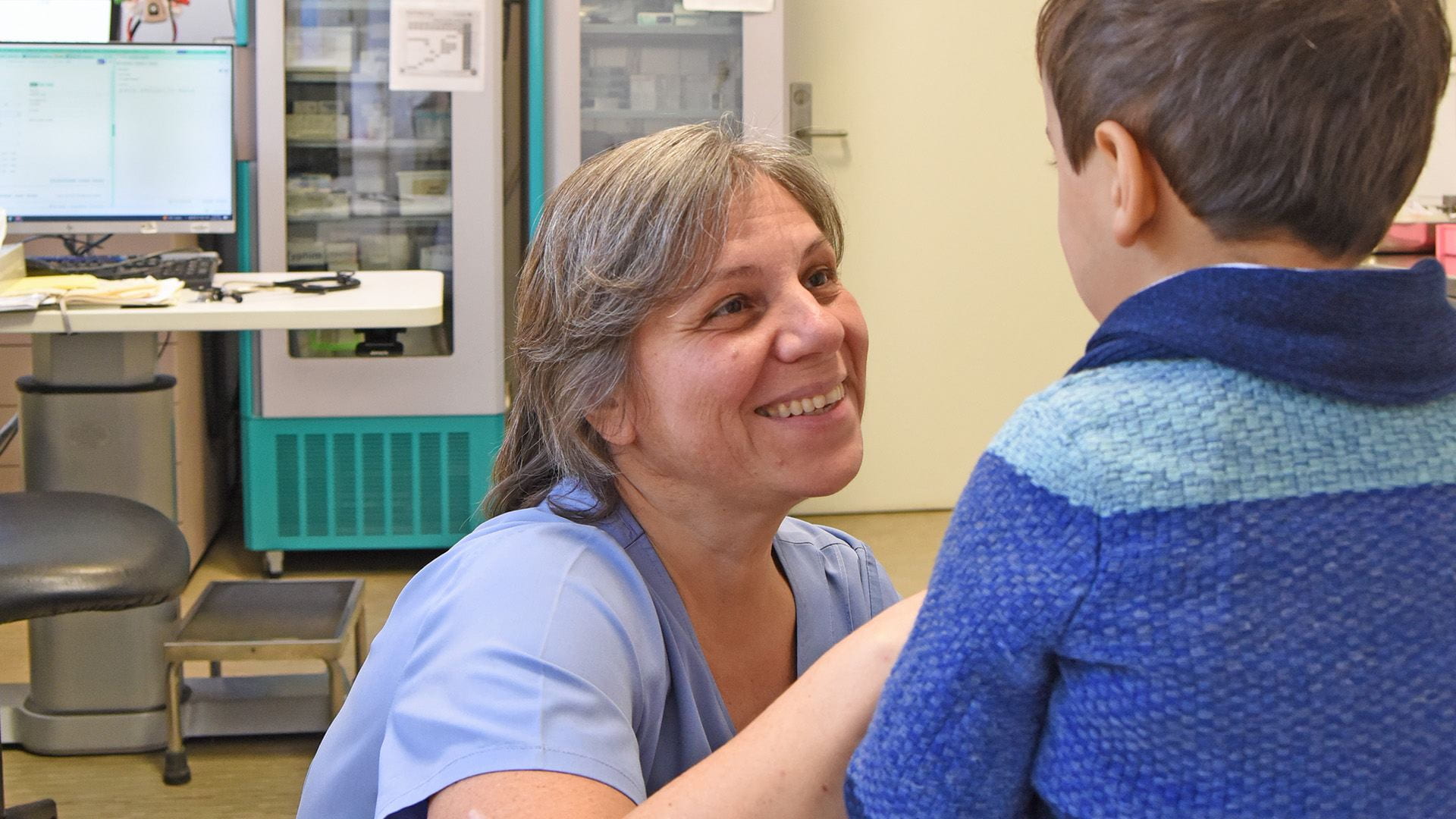
Face to Face: Administering Healthcare with Heart
Vol. XXII, No. 1, 2024
Judy Salim Nassar has spent 31 years at AUBMC refining her skills as a nurse, and along the way she has acquired equal skill in interpersonal relations. Hers is the welcoming presence that greets children when they are brought to the Family Medicine Clinic to get vaccinated, and she is the one who can quiet infants, comfort toddlers, and reassure parents their children are in safe hands. Some parents don’t need convincing because they saw Nurse Judy when they were young. “It’s like seeing my own grandchildren,” she says.
Hepatitis, diphtheria, typhoid, meningitis, chicken pox—Nurse Judy administers the vaccinations to families of AUB employees and outside families, and she knows all the tips and tricks. “Children need to express their feelings. I try to love them and play with them. If they start to cry, I can cry like them. If they scream, I pretend to scream like them. People tell me not to bother talking to the babies because they don’t understand.
But I explain to the babies I don’t like injections either, but we must have them to stay safe. And they do understand.” Adults need explanations, too, Nurse Judy has learned. “I explain the vaccinations and their effects. Some adults get dizzy just seeing a needle, so I have them lie down. If the adult needs the vaccination and is scared, I ask the child to hold their hand and tell their parents to be strong. Talking and learning is the best solution.”
Nurse Judy says she learned her caring and loving approach early from her own parents, and later from mentors like Gladys Mouro, former director of nursing services at AUBMC. “If you care for the patient as if they were your own family and listen to them, they may have something they need to say. That is half of the healing process. Medicine is the other half.” She is also fond of quoting Mother Theresa: “Be kind and merciful. Let no one ever come to you without coming away better and happier.”
Over the past three decades, Nurse Judy has had nothing but praise for her colleagues. “Working in a professional institution with a well-organized team gives me the strength and self-confidence to provide the best quality of care.” She sees her colleagues as family. “My father wanted me to work near my village after training at AUB,” she says. “But I said I couldn’t leave. I had to stay. It had become home.”